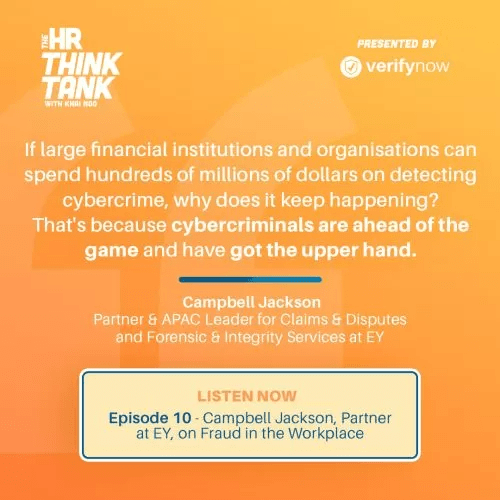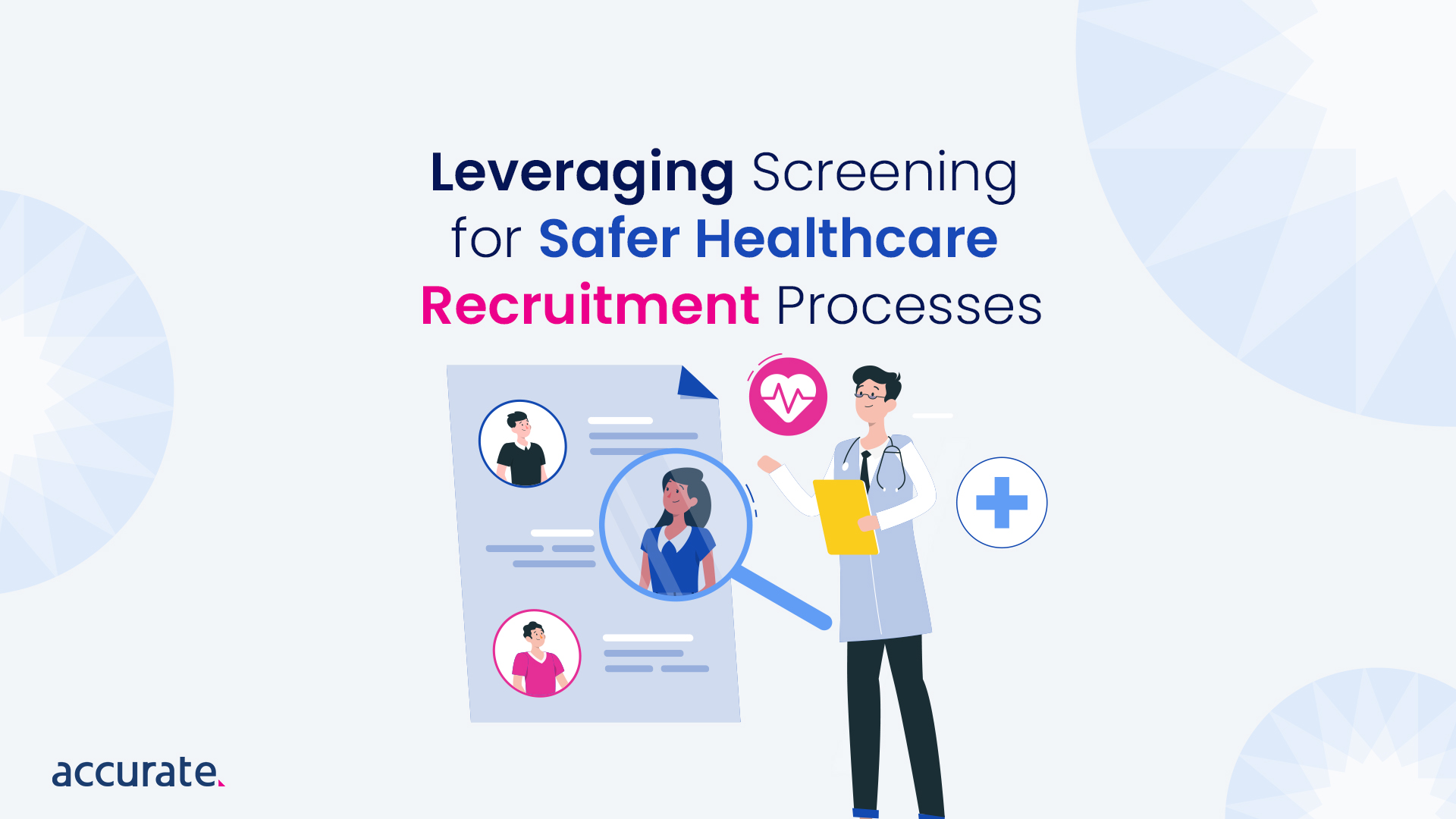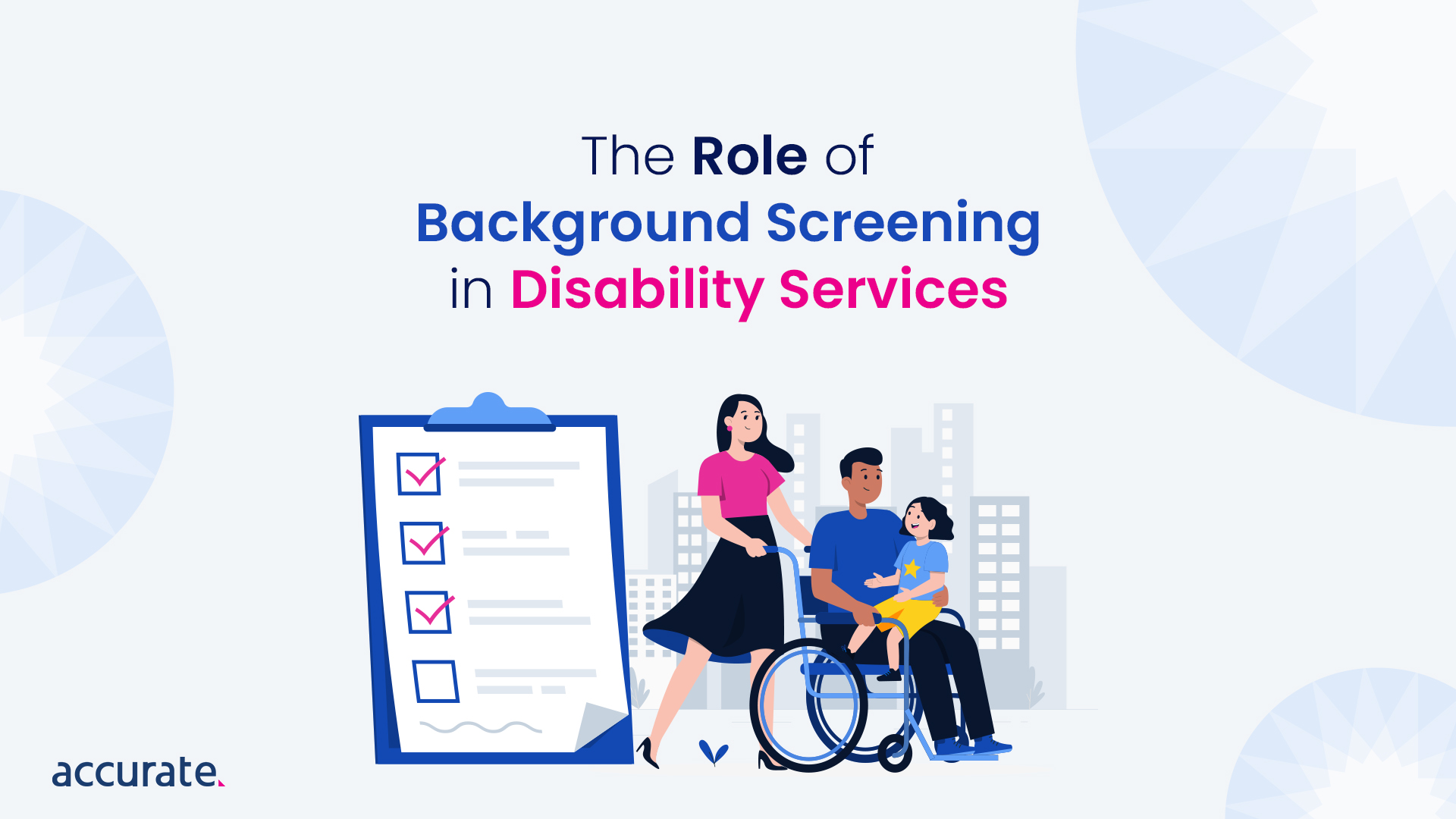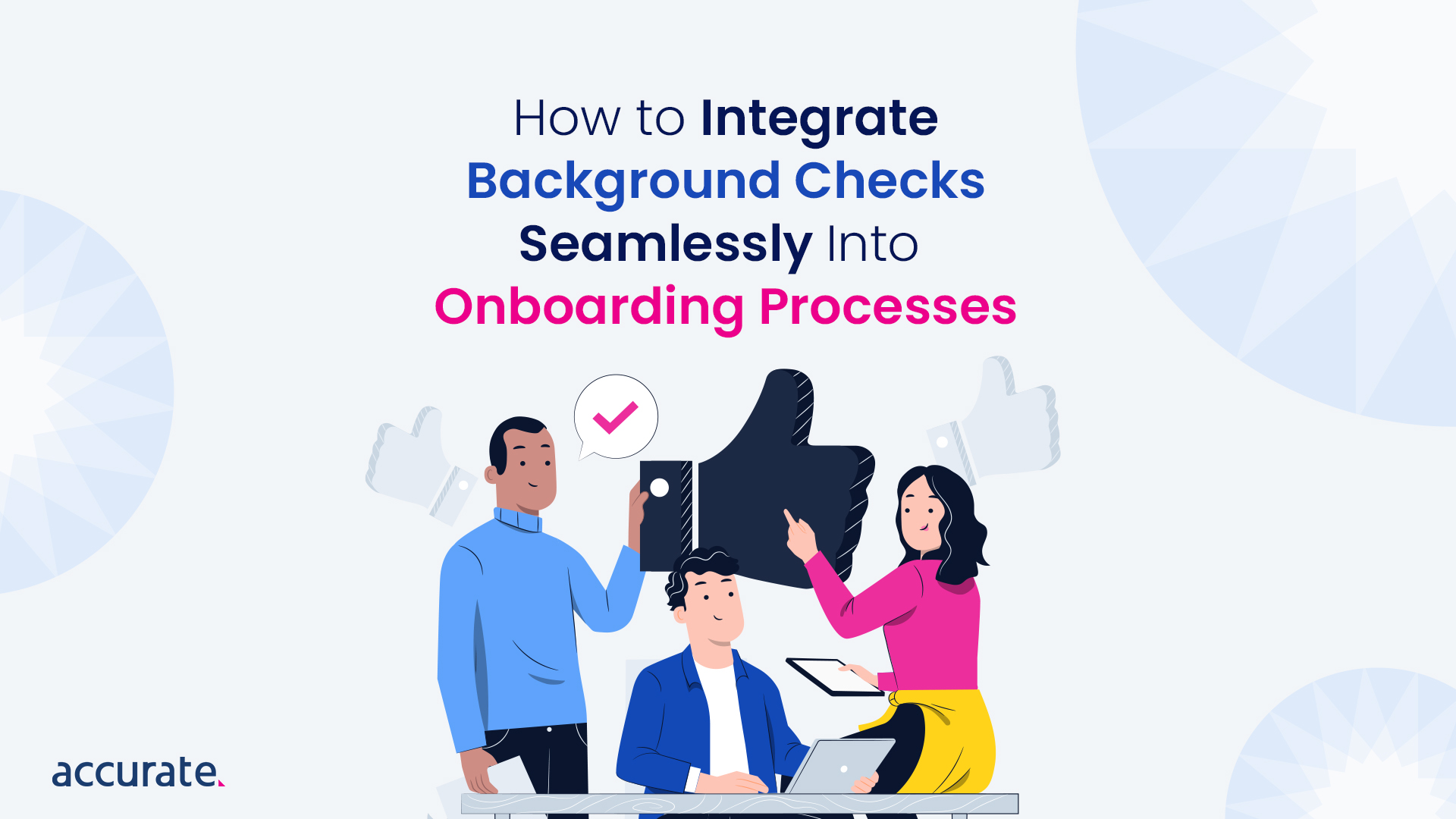Fraud is an inescapable reality of any modern workplace, and it’s definitely been amplified by remote working. Half the time, organisations don’t even realise they have been defrauded, and it’s happening right under their noses.
Unfortunately, this can lead to serious consequences for companies and employees alike. The reputational damage can impact trust and how your employees, customers, suppliers, regulatory bodies and the broader community view your organisation.
When it comes to identifying fraud in your workforce, you need to be proactive and remain vigilant about what could happen and how you respond.
In the latest episode of the HR Think Tank, we spoke to Campell Jackson, a Partner and the Asian-Pacific Leader for Claims and Disputes, as well as Forensic and Integrity Services at Ernst & Young. He shared warning signs to look out for, the impacts, preventative measures you can take and the trends for the future.
Warning Signs and the Fraud Triangle
A well-known criminologist, Donald R. Cressey, developed the fraud triangle so that organisations can combat fraud by understanding how and why it happens. It has three components: pressure, opportunity and rationalisation. And all three are common in a fraudulent event.
According to Campbell, the first component, pressure, is “effectively the warning sign that something is not right or that there is some underlying reason driving the anticipation of committing a fraudulent event.” For example, it could be substance abuse, gambling or job loss.
The second element is opportunity. Fraud doesn’t just happen – you have to give them the opportunity to do it. Campbell refers to this as “the keys to the castle.” If your organisation doesn’t have the correct control measures in place, you’re essentially giving the fraudulent individuals the opportunity to find your weakness and take advantage of that.
The third element is rationalisation. According to Campbell, “a fraudster will rationalise their actions if they believe the company deserved it.”

How Much Damage Can Fraud Cause an Organisation?
The damage goes far beyond just monetary value, and Campbell suggests that the real loss is the loss of reputation and the impact on the organisations share price.
And if your reputation has been damaged, it’s even more important to consider how you are going to respond to the fraud.
“The response to the issue must be as complete and thorough as the issue itself because the organisation is judged on how they respond and on the quality of the investigation rather than the event itself.”
How you are going to respond to the fraudulent event is the key to good management.
Fraud Prevention Practices
Fraud is everywhere, and no organisation is immune to it. But, fortunately, there are some useful fraud prevention practices that organisations can implement to better protect themselves.
Campbell suggests to first profit from the misfortune of others, “And by that, I mean, learn lessons from your peers. Whether you’re a charity or a listed company, if fraud is happening over there, it’s probably happening here too.”
His second suggestion is around the organisation’s employee culture, “It’s important to allow your employees to engage in the process of identifying fraudulent activity.” Engaging your employees could be as simple as discussing your organisation’s plan for dealing with fraud or conducting a survey.
Another fraud prevention practice involves training. Training is not only great for identifying and managing your expectations, but it can also help you respond to things when they go wrong.
And lastly, Campbell talks about the significance of harnessing the data that’s in front of you to help detect fraud and prevent fraud, “All of the banking is electronic now, and everyone uses email. Social media also plays a significant role. I can see what you’re up to, I can tell where you are today, I can tell what you had for dinner last night, and I know who your friends are.”
So use it to your advantage because that will give you the markers of where the action is and what issues you may have.
https://youtube.com/watch?v=tqXqS17GAEk%3Fcontrols%3D1%26rel%3D0%26playsinline%3D0%26modestbranding%3D0%26autoplay%3D0%26enablejsapi%3D1%26origin%3Dhttps%253A%252F%252Fverifynow.com.au%26widgetid%3D1
Key Takeaways
In the latest episode of the HR Think Tank, Khai and Campbell tackle workplace fraud. Unfortunately, in most cases, fraud is an unavoidable feat for many organisations. But there are definitely ways to identify it, combat it and prevent it from happening again.
If there is one lesson that you take away from this discussion with Campbell, it is trust your gut instinct and don’t let it go. And whether you like it or not, there’s not a lot of time to plan for these reputational events because of social media. So always have a plan in place for how you are going to respond as an organisation.
Make sure to tune into HR Think Tank Episode 10 with Khai Ngo and Campbell Jackson.



